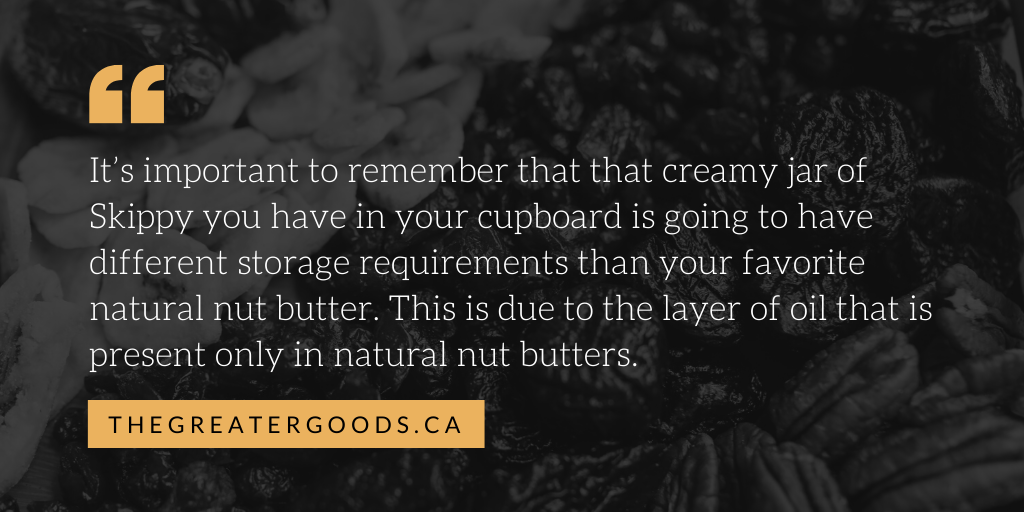So, you opened a jar of delicious almond butter months ago, only to get distracted by another nutty spread in your cupboard. You’ve decided to return to it after a few months, but are now wondering – does almond butter go bad? You may have been unsure of how to properly store almond butter after opening, and are wondering if it was okay to leave it in your cupboard next to the rest of your non-perishable spreads. In this article, we take a look at exactly how you should be storing your almond butter after opening, as well as how to tell if your almond butter has hit its expiration date.
Natural and Non-Natural Nut Butters Have Different Rules

It’s important to remember that that creamy jar of Skippy you have in your cupboard is going to have different storage requirements than your favorite natural nut butter. This is due to the layer of oil that is present only in natural nut butters.
Huff Post explains how the layer of oil in natural nut butters makes a big difference in terms of their storage requirements:
“Whether it’s suggested that you refrigerate nut butter doesn’t depend on the type of nut used, but the method in which it’s prepared. Natural nut butters — the easiest way to make this distinction, other than the label, is to check if there’s a layer of oil on top — are generally suggested to be stored in the refrigerator. You don’t want that layer of oil to go rancid and ruin the flavor of your nut butter. If you opt for a non-natural, “no stir” type of nut butter (think popular peanut butter brands like Skippy or Jif), storing them in the pantry is completely fine.”
Storing Almond Butter
Now that we know that there are different rules for different types of nut butters, is there a difference in how long each can be stored in their respective storage areas? Most items that must be stored in the fridge are not meant to stay there indefinitely, while a pantry item tends to have a much longer shelf life.
Leaf.tv takes us through how long each nut butter can survive in both the refrigerator and the pantry:
“If the almond butter has oil separation, stir it with a butter knife before you refrigerate it. It’s easier to stir almond butter at room temperature. Homemade raw almond butter will keep in the refrigerator for about two weeks, and store-bought may keep for months. A cooler with block ice or reusable freezer packs can also substitute for refrigeration. To store almond butter without a fridge or cooler, choose a cool, dry, dark place. Because heat rises, a lower shelf in a closet or cabinet away from heat sources is a good place.”
How To Tell If Almond Butter Has Gone Bad
So, you’ve accidentally stored your nut butter in the pantry, or you’ve stored it in the fridge for longer than the recommended two weeks. How can you tell if your almond butter has gone bad?
Doesitgobad.com explains the key indicators behind when its time to throw your almond butter in the trash:
“First, give it a good whiff. If it smells sour, or somewhat chemical like oil paint, instead of the usual nutty aroma, that’s a sure sign it’s done for. Second, give it a taste, and if it’s off by any means, discard it. Other than oil going rancid, look for the usual signs of spoilage such as black or brown spots on the surface or the insides of the jar, any signs of mold, funny smell, or bad taste. If either is present, discard the vegan butter.”
Here at The Greater Goods, we offer consultation services for your business, from food production to distribution. If you’re looking for advice on how to get up and running, we offer a free consultation with our expert food industry consultants and food brokers.
